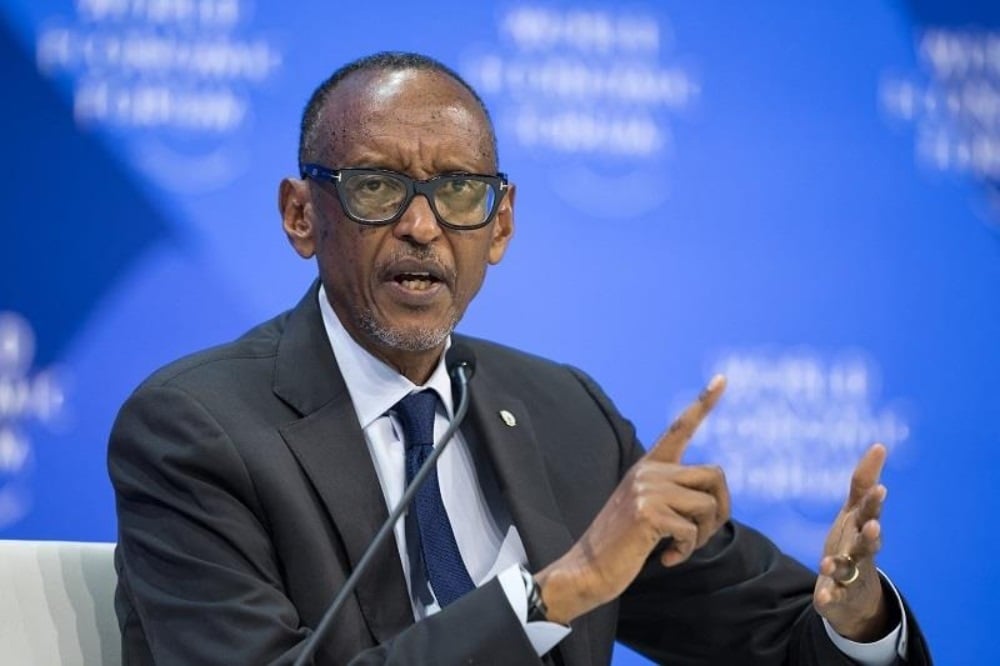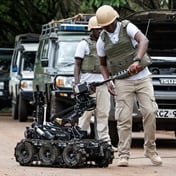
- Paul Kagame is irritated by accusations that Rwanda supports M23 rebels in the DRC.
- If you understand the history and context, that question is irrelevant, he maintains.
- Kagame says there are more than 100 000 DRC refugees who have fled injustice in their country.
Rwandan President Paul Kagame is tired of being asked about allegations his government is supporting M23 rebels. So much so, that he's starting to wonder why those asking are not supporters of M23.
"Well, those who accuse us, I would ask them why they don't support the M23 themselves. As a journalist, why don't you support the M23? Or why is the question: 'Do you support M23 or you don't support M23?'" Kagame shot back at journalists this week, when asked about his relationship with the group.
The Democratic Republic of the Congo considers M23 something of a proxy for Rwanda, and that is at the root of tensions between the countries that have sometimes hinted at the possibility of war. Other countries, including the US, have no doubt that M23 is supported by Rwanda.
But the situation is more complicated than those from abroad realise, said Kagame.
"M23 is an organisation born in and out of the Democratic Republic of Congo," he said.
"That's number one. Number two: these are Congolese. And you'll hear even Congo admit it."
The rebels were "called Tutsis of Rwanda", said Kagame, but the group existed, and fought, because "they have been denied their rights as citizens" of the DRC.
Borders drawn on a map don't always capture the reality in places such the DRC's North Kivu, Kagame said.
Rwanda's Kagame continues to use the FDLR as an excuse for his war of aggression against the DRC via the M23 which is occupying Congolese territory and killing and terrorizing civilians. This UN statement on FDLR from 15 years ago is incredibly revealing. https://t.co/xiHxzrqfSK
— Friends of the Congo (@congofriends) April 11, 2024
"We have Rwandan communities in the Congo who are Congolese. And by the way, these are not just Tutsis, it is the same social structure of our country that is also there in the Congo. Like, you have other neighbouring countries where they are, but they are citizens of those countries," he added.
Kagame said because of the unjust way these people were being treated in the DRC, more than a hundred thousand were in Rwanda territory as refugees, "because they are being uprooted from their ancestral homes, persecuted, and sent across".
In the 1960s, ethnic tensions in Rwanda forced over 300 000 members of the Tutsi minority to migrate to neighbouring nations, primarily the DRC. Some of those exiles reassembled and attempted to seize power in Rwanda when the nation obtained independence from Belgium in 1962. Uganda too hosts a large population of Tutsis, after they fled the DRC in the 1960s.
"Nothing can be worse than what we have already experienced. This is a nation of 14 million people who are ready to confront any attempt to take us backwards.” President Kagame | #Kwibuka30 pic.twitter.com/6Exc9f4bdK
— Presidency | Rwanda (@UrugwiroVillage) April 8, 2024
Kagame said that's where the M23 linkage between the countries lie.
"So the M23 is born out of that situation. That's why I asked the question and I said, 'Why are we being accused as Rwanda of supporting M23?' And I'm saying even those who accuse us, actually should accuse themselves of not supporting M23 because it is as if they agree with the injustice that is being done to this community. Otherwise, if you didn't agree with that injustice, you would be actually raising questions," he said.
Wrong questions
Kagame added that the world was asking the wrong questions about the M23. Instead of asking about Rwandan funding, other countries should be asking why there are 100 000 refugees in Rwanda.
"That's where you would start from, not start from asking Rwanda, are you supporting M23 or not?
He added:
Whether M23 enjoys Rwandan support "is actually immaterial, it is irrelevant", he said.
Kagame is himself a former rebel leader.
A civil war erupted in October 1990 when the Rwandan Patriotic Front (RPF), a Tutsi rebel group he commanded, invaded the country from Uganda, where it enjoyed the protection of strongman Yoweri Museveni.
The Security Council reaffirms its commitment to the sovereignty and territorial integrity of the #DRC and demands the unconditional withdrawal of M23 as agreed through the African Union-endorsed Luanda Process. pic.twitter.com/BwPvdJYo1w
— U.S. Mission to the UN (@USUN) April 5, 2024
In April 1994, radical Hutu militias attacked Tutsis and moderate Hutus, killing about 800 000 to a million people over 100 days.
On 4 July, RPF marched into Kigali, as Hutu genocidaires, army, and former government leaders fled to the DRC.
Most of them formed a rebel group Democratic Forces for the Liberation of Rwanda (FDLR) which is fighting alongside the DRC against the M23.
The News24 Africa Desk is supported by the Hanns Seidel Foundation. The stories produced through the Africa Desk and the opinions and statements that may be contained herein do not reflect those of the Hanns Seidel Foundation.




 Publications
Publications
 Partners
Partners























